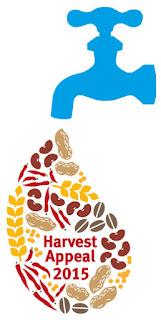It’s not the religion that creates terrorists, it’s the politics
by Giles Fraser of The Guardian
 |
The word “radical” has always been an overly capacious term, easily filled with whatever meaning the speaker wants to pour into it. There is the radical right, the radical left, even the radical centre, whatever that means.
Traditionally associated with the 18th-century English struggle to extend the franchise and with the cause of freedom, it has been one of those words no modern politician can do without. Google any of the current crop of parliamentarians adding the words “radical vision” and see what I mean. They’re all at it, all claiming it. Unless, of course, you put the word Islamic first. And then it immediately becomes a bogey word.
“How do we stop young Muslims becoming radicalised?” is the question we now continually ask. But it’s a deeply misleading question because it points us in the wrong direction. Why? Because it contains a hidden assumption that it is radical ideas, specifically Islamic theological ideas, that are the root cause of turning a young lad from West Yorkshire into an Isis suicide bomber in Iraq. According to the radicalisation hypothesis, it’s conservative Islam and the dangerous ideas contained in the Qur’an that motivate murderous behaviour.
We want to tell ourselves that we are secular and enlightened and so have no part in all of this bloodshed.
To me this is about as convincing as arguing that the murderous bits of the Bible were responsible for the brutality of the IRA. For many of the young people who have been persuaded to go off and fight in Syria and Iraq have hardly got past the first chapter of Islam for Dummies.
They often know next to nothing about the Qur’an and are about as motivated by reading the few passages they have as the average republican terrorist was motivated by Saul’s genocidal destruction of the Amalekites in the first book of Samuel. Yes, the language of violent jihad may borrow its vocabulary from Islamic theology – it’s a useful marker of shared identity – but root motivation is as it always is: politics. The IRA weren’t Bible-believing Catholics, they were mostly staunch atheists. Catholicism was simply a marker of who counted as “one of us”. And the same is true of Islamic terrorism.
Earlier this year, Professor Arun Kundnani published a fascinating account of how the rhetoric of radicalisation has created “a decade lost”. In it, he summarises the flimsy empirical basis on which the connection between radical theology and terrorism has been built and the extent to which the burgeoning radicalisation industry, especially in academia, is linked by a revolving door to conservative political lobbyists keen to blame conservative Islam for terrorism
The reason this is important has nothing to do with exonerating religion. I don’t care about apologetics here. So let me acknowledge that both the Qur’an and the Bible have passages that are deeply immoral. But don’t get distracted by this. For this is not how or why people go to Iraq to become murderous criminals. They go – largely – because they believe their tribe is under attack, that Bashar al-Assad is dropping chlorine gas, that the west invaded Iraq, because of torture and Guantánamo Bay, and because they have a warped and misguided sense of adventure in responding to all this.
We buy into the radicalisation hypothesis because we want evil to be mysterious and other; something that has nothing to do with us. We want to tell ourselves that we are secular and enlightened and so have no part in all of this bloodshed. It’s what people commonly do with evil – we conceptualise it as being as far away from us as possible. But if Islamic terrorism is really all about politics, then we have to admit that the long history of disastrous western interventions in the Middle East is a part of the cause of the horror that continues to unfold. In other words, we have to face our responsibility.
But even more troubling than the evasion of responsibility that is built into the radicalisation hypothesis is the fact that it points us in the wrong direction when looking for how to prevent it. If you want to find a terrorist, look for people buying dodgy chemicals, not people saying their prayers.





